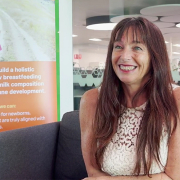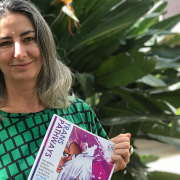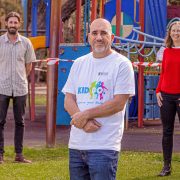Early life: a time of growth and foundation-building, in need of tailored care
Professor Valerie Verhasselt and her team at the UWA Larsson-Rosenquist Centre for Immunology and Breastfeeding (LRF-CIBF) are pioneering a shift in early-life healthcare by placing the infant’s unique needs at the centre of research and practice. They explore the active role of breast milk in immune education and long-term health, including allergy, infection, and malnutrition prevention. Their work has influenced international guidelines, policy, and parental support strategies. With over 30 global collaborators and strong consumer engagement, their research bridges scientific discovery with real-world impact, helping shape nature-inspired, age-appropriate solutions for healthier beginnings—guided by the most creative intervention: breast milk.










